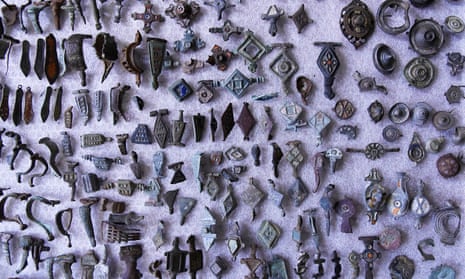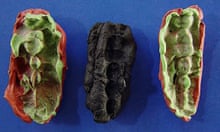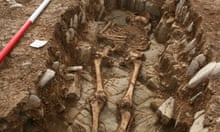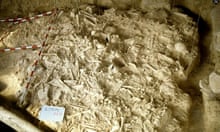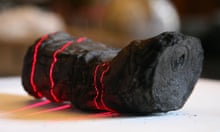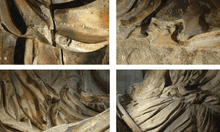A treasure hunter who claimed to have dug up 14,154 Roman coins in a Belgian field has been accused of being one of the greatest archaeological looters in European history.
The Frenchman, identified only as Patrice T, told Belgian officials that he found the relics by chance with a metal detector at two sites close to Gingelom, a Flemish town 40 miles east of Brussels, in October last year.
In France, metal detectors are only allowed to be used for scientific research, but in Dutch-speaking Flanders they can be used for personal searches. The coins were legally declared as the finder’s property.
The treasure hunter’s account is said to have unravelled, however, after officials at the Belgian Agency for Immovable Heritage raised concerns with French customs over the size of the discovery and the location of the plots where the coins were supposedly unearthed.
A subsequent raid by French officials on the man’s house allegedly revealed an astonishing hoard of 27,400 invaluable objects, ranging from bracelets and necklaces dating from the bronze and iron age to a hollow copper Roman dodecahedron of which there are only a hundred known copies. Their use remains an archaeological enigma.
There were also Roman brooches known as fibulae, Merovingian and Renaissance belt buckles, parts of statues and Roman and Gallic coins – all of which are said to have been illegally unearthed in France.
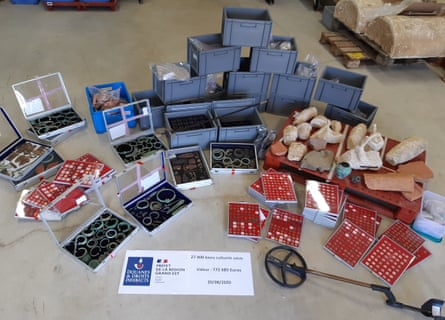
French officials believe the man, who is awaiting trial, had been exploiting the difference between French law and Flemish regulations to amass his cache of looted goods.
Bruno Le Maire, France’s economy minister, said: “We are delighted with this exemplary cooperation between customs officials, archaeologists and our Belgian friends, whom we sincerely thank you for their vigilance.
“It enabled the seizure of an invaluable archaeological treasure. The offender is liable to imprisonment and hundreds of thousands of euros in customs fines. This is a clear message to those who, for the benefit and selfish pleasure of a few, rob us of our common heritage and erase entire swaths of our history.”
One of the Belgian officials first at the scene in Gingelom said the man’s account had not rung true from the start.
Marleen Martens told the Het Nieuwsblad newspaper: “The man said he bought it because he liked to come for a walk in the area and set up a caravan there. He had made the find when he wanted to clean up the ground with a metal detector. I thought he had found some coins, but he took two full buckets from the trunk of his car.
“During the site survey we concluded that it was impossible for the coins to come from this site. They were located in an earth layer that was formed after the middle ages. A few coins could exceptionally still toss up. But 14,000?”
